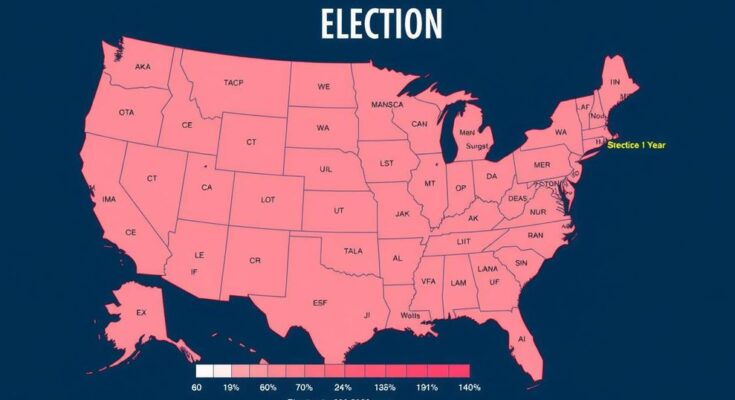The year 2024 marked an unprecedented milestone in democratic participation, with nearly 3 billion votes cast across 73 countries, highlighting both the remarkable engagement in democratic processes and significant obstacles including a decline in trust in institutions, misinformation, and underrepresentation of women and youth. Despite these challenges, the “super election year” also unveiled opportunities for reform, representation, and a renewed commitment to the principles of democracy.
The year 2024 stands as a landmark in electoral history, witnessing a record turnout with nearly 3 billion individuals voting across 73 nations. This unprecedented participation in local and national elections emphasized the profound impact democratic processes can exert on societal structures globally. Many voters engaged in democratic processes for the first time, highlighting the accessible nature of such systems. However, notable challenges faced democracies, including a pervasive sense of disconnection from political processes, with two-thirds of participants expressing that their voices were inadequately represented.
This era of heightened electoral activity has been dubbed the “super election year,” reflecting significant political transitions as voters actively removed incumbents who were disconnected from public sentiment. Rising far-right movements in countries like France and Germany capitalized on economic anxieties and cultural divides, although they faced obstruction from centrist coalitions. Electoral mishaps, such as vote-buying incidents in Serbia and restrictive voter ID laws in the United Kingdom, further eroded public trust in electoral fairness.
In this challenging environment, signs of democratic resilience emerged, particularly among younger leaders in nations like Chad, Mozambique, and Senegal. Their ascent marked a promising move toward inclusivity within governance systems. Voter cooperation across diverse political ideologies underscored the potential for unity in addressing democratic norms, while a renewed focus on more inclusive policies offered strategies for accommodating evolving public expectations. Still, significant barriers remained regarding the representation of women and youth in political spheres, with women’s legislative presence declining slightly, and the average age of elected officials shifting minimally.
Thus, the 2024 elections highlighted both the successes and vulnerabilities embedded within contemporary democracies. Despite the challenges of disinformation, political division, and economic pressures, this year also illuminated opportunities for progress, collaboration, and the enhancement of inclusive governance to respond aptly to societal needs.
In terms of women’s representation, 2024 saw both achievements and setbacks. Notable gains occurred in Mongolia, which recorded a seven-percentage-point rise in women’s parliamentary representation, attributed to the implementation of a 30% gender quota in May 2023. Similar advancements were noted in Jordan, the Dominican Republic, and the United Kingdom, showcasing the positive influence of deliberate reforms promoting gender equality. Conversely, Bhutan and Belarus experienced marked declines in women’s political involvement, indicating the inconsistent global progress toward gender empowerment.
Youth representation also lagged, with young individuals being notably underrepresented in political institutions worldwide. Although the average age of elected leaders witnessed a slight decrease from 62.4 to 61.3 years, eight newly elected leaders were under 50 years old, demonstrating a modest but significant shift, particularly in Africa. The challenges surrounding electoral integrity and fairness remained prevalent, with issues such as fraud, resource abuse by incumbents, and weakened enforcement of campaign finance laws diminishing public confidence in electoral systems. Additionally, the trust in democratic institutions continued to deteriorate, exacerbated by misinformation and the polarizing effects of social media. Traditional media’s integrity also faced scrutiny as it grappled with neutrality in reporting during electoral cycles.
The voter dissatisfaction, heavily influenced by economic adversity and ongoing instability, has propelled voters toward anti-incumbent sentiments, manifesting in a consistent rejection of established political figures in many regions. Amidst these daunting challenges, the electoral activities of 2024 concurrently present a vital platform for the revitalization of democratic ideals, encouraging innovative reforms and a deeper commitment to mass participation in electoral processes.
The significance of the 2024 elections cannot be overstated, marked by an unprecedented level of voter participation worldwide. The challenges confronting democracies, particularly concerning public trust and institutional integrity, reflect deeply ingrained systemic issues exacerbated by disinformation and social divisions. The year provided a unique lens through which to analyze the evolution of political representation, especially concerning women and youth, amidst the struggles of various political movements. The juxtaposition of significant electoral engagement against a backdrop of ongoing political discord reveals a crucial moment for possible reform and reiteration of democratic values.
In conclusion, the “super election year” of 2024 encapsulated the complex and often contradictory nature of contemporary democracies. The record voter turnout highlighted the enduring desire for democratic participation, yet significant barriers to representation and trust persisted. The electoral process remains fraught with challenges, ranging from the influence of disinformation to entrenched systemic injustices. Nevertheless, 2024 has been a clarion call for revitalizing democratic ideals, ensuring inclusivity, and embracing innovative approaches to governance.
Original Source: anfrel.org




